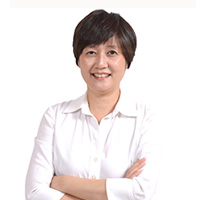
After much vacillation over whether to visit the US side of my family over Christmas or to stay in Seoul, I had finally resigned myself to spending the holidays at home.
I had booked my flights months in advance, in hopes that the pandemic situation would improve with time. After all, vaccines that can protect against the virus that causes COVID-19, or at least lessen the severity of an infection, were now widely available. We had also learned over more than a year of the pandemic that the spread of the novel coronavirus could be slowed down by vigorously enforcing social distancing measures and face mask-wearing rules. Countries around the world imposed lockdowns when a spike in the number of patients threatened to debilitate their healthcare systems. We were learning to cope with the vagaries of this disease.
When, prompted by a desire to return to normalcy, countries relaxed their social distancing rules despite warnings by health experts, and the public, weary of the prolonged pandemic, let down their guard, the number of cases rose again. And with the emergence of a more highly contagious variant of the virus that causes COVID-19, the world finds itself in the throes of yet another pandemic crisis.
Korea is no exception. It set on a phased return to normalcy on Nov.1 under the slogan “living with COVID.” Less than 50 days after the implementation of the first phase of relaxed social distancing measures, the government found itself having to reimpose some of the earlier restrictions and postpone the transition to the next phase. This was due to the delta variant driving a record-breaking number of daily new cases, and the emergence of the highly transmissible omicron variant threatening the already overwhelmed health care system.
The frequent wailing of ambulance sirens starting earlier this month felt like an eerie deja vu of the early months of 2020. The difference was that back then, the streets were virtually empty as people stayed home. And now, ambulances are often stuck in evening rush hour traffic.
When the government imposed new travel restrictions aimed at curbing the introduction of the omicron variant from overseas, I debated whether I should proceed with my travel plans or stay put in Seoul. I had wavered until I finally made peace with skipping yet another holiday with my family. But I still held on to hope and did not cancel my flight reservation.
Then came the snow.
Watching the soft snowflakes waft through the air before gently landing on the ground, I sat mesmerized. “I am going,” I told myself.
For too many weeks, I had wrestled with the question, “What would be the right thing to do?” That snowy Saturday afternoon, I found the answer. Then the anxiety and sense of foreboding that had troubled me dissipated all at once.
It was not out of hopelessness or a sense of futility or uncertainty about the future that I decided to see my family. Looking at the pristine snowscape that afternoon, I felt a sense of calm, joy and certitude. I felt optimistic that all will be well with the world. Also, that traveling to see my family was the right thing to do.
After the Christmas dinner had been put away, and all the presents exchanged, my father said that it was the best Christmas he has had in years. He added that we should do this every Christmas. I regretted all the holidays that we did not get to spend together, for whatever reason.
That it took a raging pandemic to make me realize how precious families are is a telling sign of how I had taken them for granted.
The third year of the COVID-19 pandemic looms ahead. As much as we had hoped that the year 2021 would be the last year of this disease, 2022 will see us still battling against it. Perhaps this crisis could serve as a turning point, a reminder of humanity’s vulnerability and the consequences of its haughtiness. If we have learnt anything from the past two years, it should be humility and the preciousness of our loved ones.
(khooran@heraldcorp.com)
----------------------------------------------
Kim Hoo-ran is the culture desk editor at The Korea Herald.—Ed.







![[Herald Interview] How Gopizza got big in India](http://res.heraldm.com/phpwas/restmb_idxmake.php?idx=644&simg=/content/image/2024/11/20/20241120050057_0.jpg&u=20241120164556)

![[Graphic News] 70% of S. Koreans believe couples can live together without tying the knot: survey](http://res.heraldm.com/phpwas/restmb_idxmake.php?idx=644&simg=/content/image/2024/11/19/20241119050098_0.gif&u=)
![[KH Explains] Dissecting Hyundai Motor's lobbying in US](http://res.heraldm.com/phpwas/restmb_idxmake.php?idx=644&simg=/content/image/2024/11/20/20241120050034_0.jpg&u=)







![[Today’s K-pop] Blackpink’s Jennie, Lisa invited to Coachella as solo acts](http://res.heraldm.com/phpwas/restmb_idxmake.php?idx=642&simg=/content/image/2024/11/21/20241121050099_0.jpg&u=20241121172748)